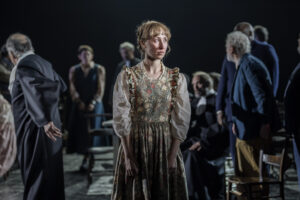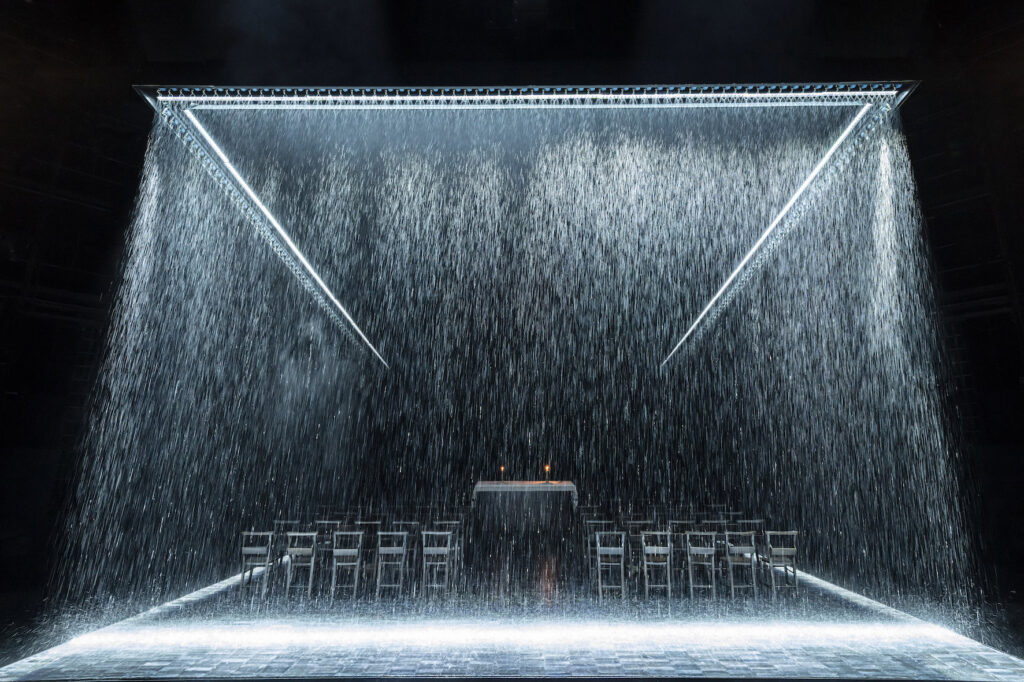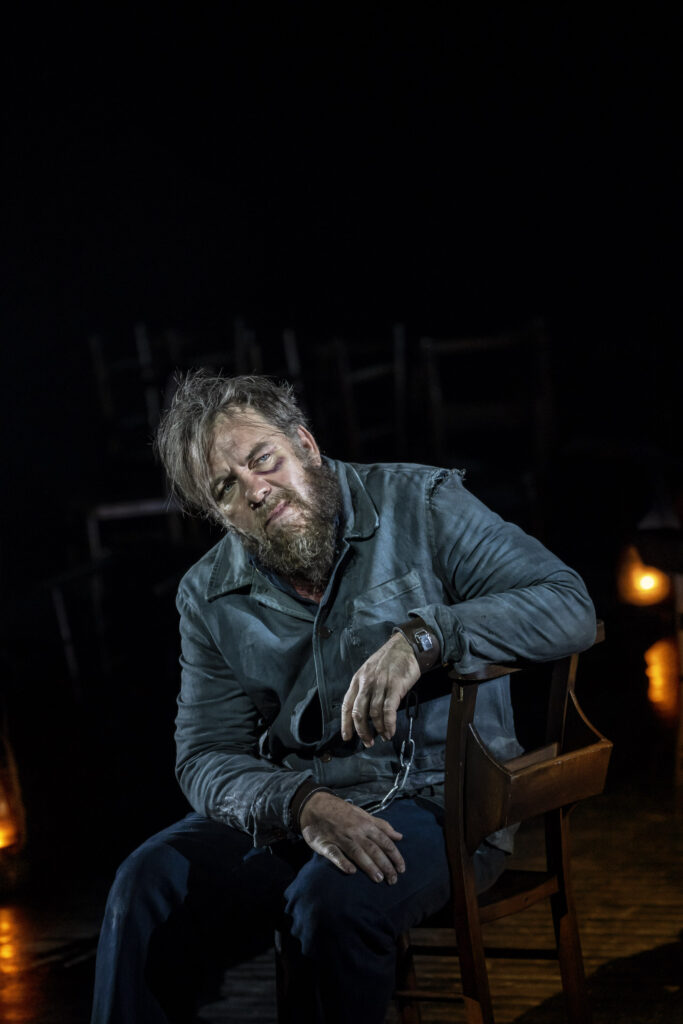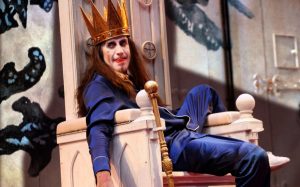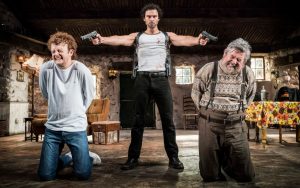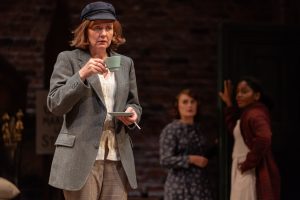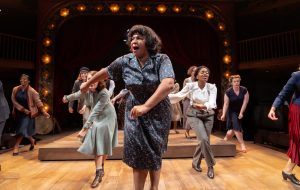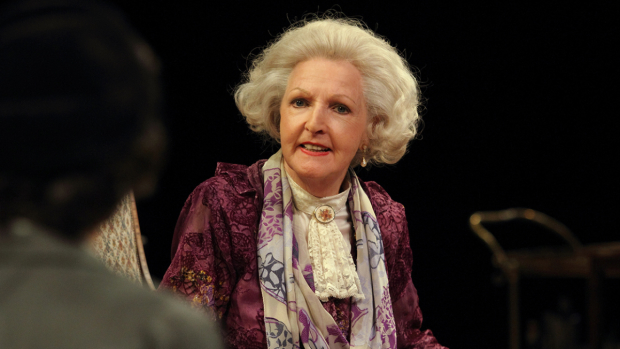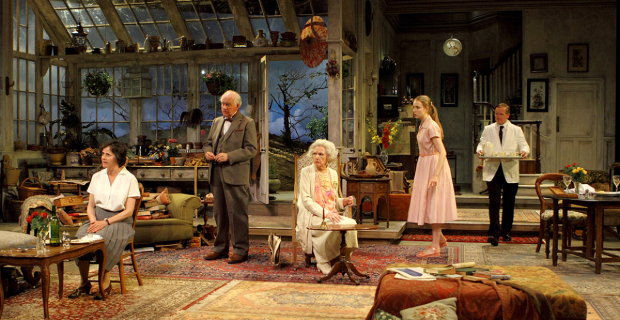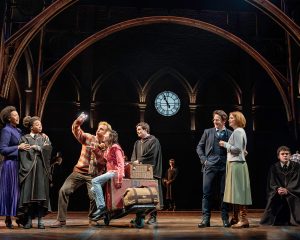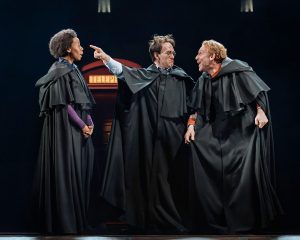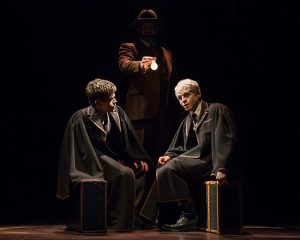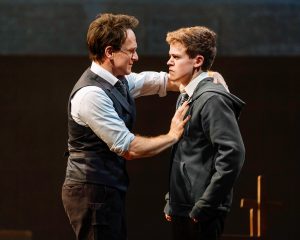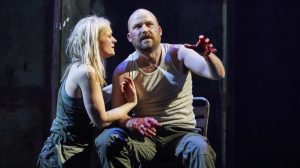Janet McTeer excels in a dramatic tale of forbidden love by Simon Stone
★★★★
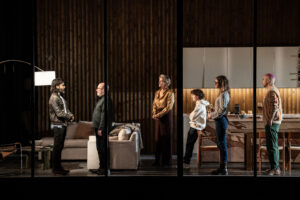
On the whole, I loved Phaedra by Simon Stone at the National Theatre‘s Lyttelton auditorium. There was just one element I didn’t like. First, let me tell you what was so good about it.
Don’t worry if you’re not keen on Greek tragedy. This is not a production full of togas and choruses. It’s a bang-up-to-date tale of a politician who has an affair. The essential story of Phaedra is still there, as told in Ancient Greece by Euripides, in Ancient Rome by Seneca the Younger, in the middle of the last millennium by Racine, and many times over since including relatively recently by Sarah Kane.
It’s always been a tale of forbidden love, originally of a princess falling in love with her stepson, but in this new version, the young man is already in his forties and he’s the son of a former lover. So, not a stepson, and certainly not a young man being taken advantage of. I guess most of us can understand the way love, or lust, can overtake reason. The forbidden love is, on the face of it, that of someone whose passionate feelings lead her into infidelity- simple adultery, although not so simple, as it turns out.
Our protagonist, called not Phaedra but Helen, is a shadow cabinet minister. You might think her forbidden love is not so much for someone other than her husband but her love for herself. This play is dominated by an examination of a certain kind of liberal middle-class people who have no moral code beyond what they feel.
We first meet a family bickering over breakfast. A teenage son is uncontrolled in his language or subject matter in front of and towards his parents. The older daughter, just visiting, is not much less restrained. The affable father jokes with them about sex. It seems to be a family without boundaries. You may or may not approve of the liberal principle of treating the children as equals, as quasi-grown-ups but, in this case, the children seem to have become self-centred and lacking in respect. Helen, the mother, leads by example. This is brought home by the way they speak over one another, barely listening. You may find this scene appalling or laugh-out-loud funny or both.
The self obsession extends beyond family to the rest of the world. Helen can be seen as the patronising face of first world- imperialist, even- attitudes towards other cultures. For example, when Helen spent time in Morocco, she didn’t bother to learn the language, and she hasn’t taken the trouble to find out where her black, best friend was born.
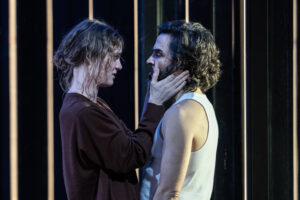
Then Sofiane arrives. He reminds Helen of his father- her past Moroccan lover, a man who died in a car crash and whose letter to his son provides an intermittent sub-titled voiceover expressing hope and regret. Sofiane makes clear he reciprocates the feelings Helen has for him. It’s not just that he’s like his father physically, he too is a political activist and that reminds her even more of how she not only has traded physical excitement for a boring marriage but has given up the thrill of activism for the compromise of party politics. I don’t need to tell you how often an older person has an affair to try to recapture lost youth.
Despite changes to the plot and the modern setting, this is still a Greek tragedy in its structure. I won’t go any further with the story, except to say Simon Stone has retained those ancient ideas that people who misbehave get punished, and revenge moves through the generations. So, there are many twists, and it does all end badly. In fact, the ending is very dramatic, almost melo-dramatic.
It’s a well-told story with much comedy and many great set scenes. One in particular takes place in a restaurant where the family and close friends are gathered for Helen’s 60th birthday. Revelation follows revelation in a scene that wouldn’t go amiss in a farce, with glasses smashing, home truths spewing out, and Helen all the while lamenting loudly about the distraction from her celebration.
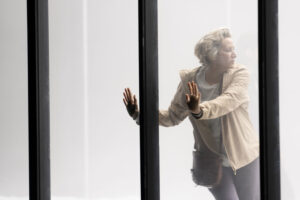
The acting is marvellous. Janet McTeer is so on point as this totally self-absorbed politician. She talks at speed, with passion and intensity, and expresses her feelings so naturally, that you forget she’s acting. The script gives her the platform for what will surely turn out to be one of the acting performances of the year.
Paul Chahidi as her husband Hugo is terrific too in the role of this put-upon husband and father who manages to keep afloat with jokes and diplomacy. He’s charming and likeable, but also exudes insignificance. You can see why he appealed to the dominating Helen, but also why she was ready to be unfaithful to Sofiane, played by the handsome, charismatic Assaad Bouab.
All the cast impress but a special word for Akiya Henry as Helen’s friend and fellow shadow cabinet member Omolara. She portrays an easy-going person who seems to take Helen’s ignorance of her background and her mockery of her religion with good humour, but you sense an iron core that emanates from her moral grounding (something Helen lacks) and she has the kind of painted smile that conceals an objective, calculating mind.
Canadian screen star Mckenzie Davis makes an impressive stage debut, riding a rollercoaster of emotions as Helen’s daughter Isolde.
No thinking outside the box
So what didn’t I like? The design. All the action takes place within a revolving glass box . This was an interesting coincidence because only the night before I saw Phaedra, I saw The Lehman Trilogy which also features a revolving glass box. But, whereas the latter worked, this didn’t. The effect is perhaps of making the audience feel like the Greek and Roman Gods who would look down on humans and their folly. Or it could suggest the way in which the characters are trapped, in this case in a cycle of betrayal and revenge. The many uprights may have been intended to reinforce the idea of the characters being in a prison but they too often obscured the faces of the actors. It was a shame not to see the agonies their characters were going through.
The biggest problem caused by the design is that every change of scene took forever. Sometimes the scene change was longer than the following scene! When you’re dealing with a raised box with awkward access and egress, everything takes much longer than it would if the action had taken place on the stage floor and scenery could be rolled on and off easily. The extended blackouts would have been intolerable but for Stefan Gregory’s hypnotic sound which played as we waited.
Designer Chloe Lamford’s talent is beyond question, and the sets within the box did look fantastic. It’s just the box that didn’t work. I don’t want to lay all the blame at her door because it could well be that she was simply doing what director Simon Stone wanted. The last production by him that I saw was Yerma at the Young Vic, and that too took place behind glass walls, so maybe it’s his thing.
Phaedra performed at the National Theatre until 8 April 2023
Paul received a free review ticket from the producer.
Click here to watch this review on the YouTube channel Theatre.Reviews with Paul Seven
